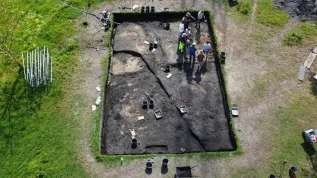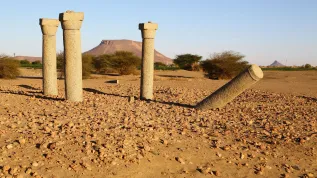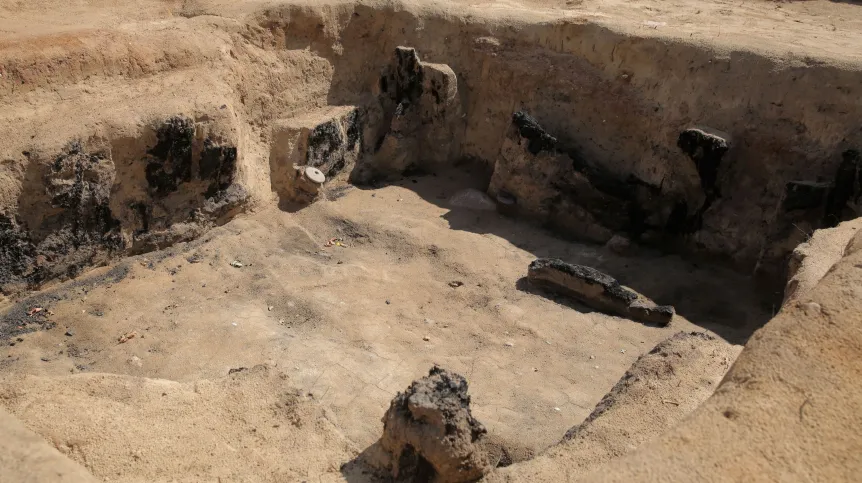
Archaeologists from the University of Gdańsk conducting excavations in Barczewko near Olsztyn discovered a deposit of about 150 14th-century bracteates, as well as a medieval sword pommel and other military items.
The place where archaeologists have been working for 10 seasons has been dubbed the 'Pompeii of Warmia', because at an early stage of its development, the city of Wartberg was completely destroyed by the invasion of the Lithuanian army of princes Kęstutis and Olgierd in 1354. It was never rebuilt or repopulated, so the ruins have been remained intact for centuries. For scientists, it is a 'time capsule' and an invaluable source of knowledge about the early history of Warmia.
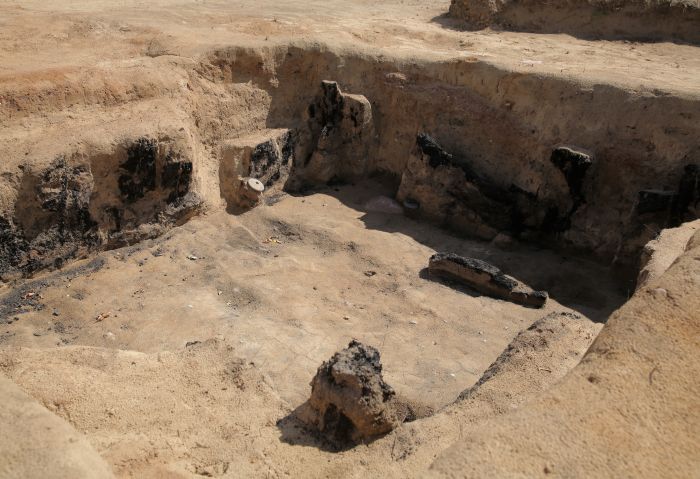
According to Dr. Arkadiusz Koperkiewicz from the University of Gdańsk, who led the research, this year's discoveries include a deposit of coins consisting of 150 bracteates, i.e. coins minted on one side from a thin silver plate.
'The set consists of bracteate pfennigs, whose material value was minor. It is valuable because it probably contains all types of small coins that were in circulation in Warmia in the first half of the 14th century', the archaeologist says.
He adds that after conservation, it will turn out whether there are any interesting or previously unknown specimens. Analysis will also reveal whether, apart from the Teutonic coins from the mints in Toruń and Elbląg, there are others that could indicate the existence of a bishop's mint.
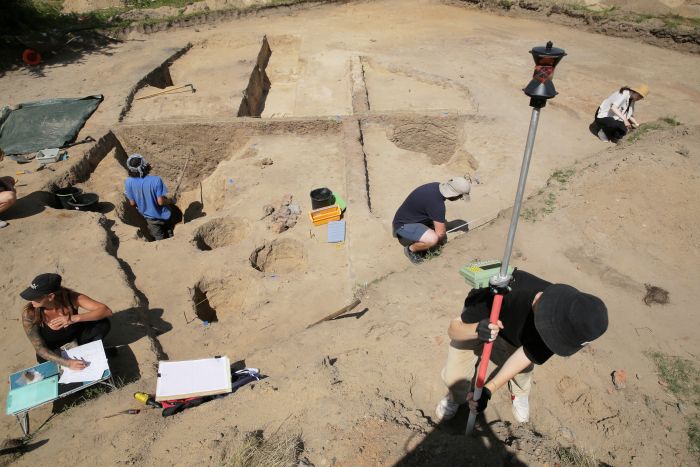
This year's finds also include valuable military items. In one of the cellars, the researchers discovered a sword pommel - the end of the hilt, a counterweight to the blade. They also found a cutlass, a type of long knife used as a weapon, as well as crossbow parts, javelin heads and, as always, numerous crossbow bolt heads.
During the work, further part of the old buildings are discovered, preserved in the ground as charred remains of wooden structures. They allow to recreate all the essential elements of the medieval town's spatial layout.
In the opinion of archaeologists, research near Barczewko is important not only for understanding the pioneer stage of colonization of Warmia, but also the process of urbanization of Central and Eastern Europe and the beginnings of the phenomenon of the emergence of cities in the Middle Ages.
According to Dr. Koperkiewicz, there are already preliminary results of isotopic studies of human remains, carried out in a laboratory in the USA. Research in the Barczewko cemetery is pioneering, as it concerns a small population, probably composed of Silesian settlers of Bishop Eberhard and the local, Christianised Prussian population.
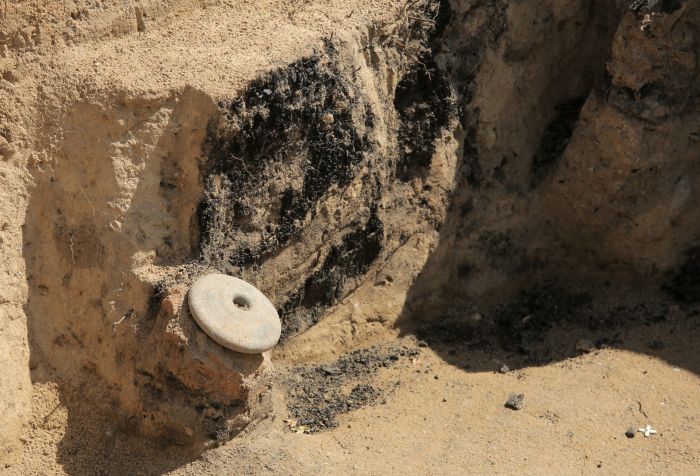
Excavations are carried out in the place where, during the colonization of the southern part of the Warmian Dominion in 1325, on the initiative of Bishop Eberhard of Nysa, an attempt was made to build the castle and town of Wartberg. It was located between Lake Wadąg and the river Orzechówka, about 5 kilometres from today's Barczewo.
The names of some inhabitants are known from historical sources: Henryk, the parish priest, the village administrators - brothers Jan and Piotr, and the miller Wawrzyniec. Wartberg is mentioned in The Chronicle of the Prussian Land by Peter of Dusburg, and the circumstances of its destruction are mentioned by Wigand of Marburg, who described the fights of the Teutonic Knights with the Prussians and Lithuanians.
The existence of the first city location is indicated by the frequent occurrence of the name 'Old Town'. Extensive interdisciplinary non-invasive research, such as the analysis of aerial photographs and geophysical surveys, contributed to the discovery of this place and confirmation of chronicle records.
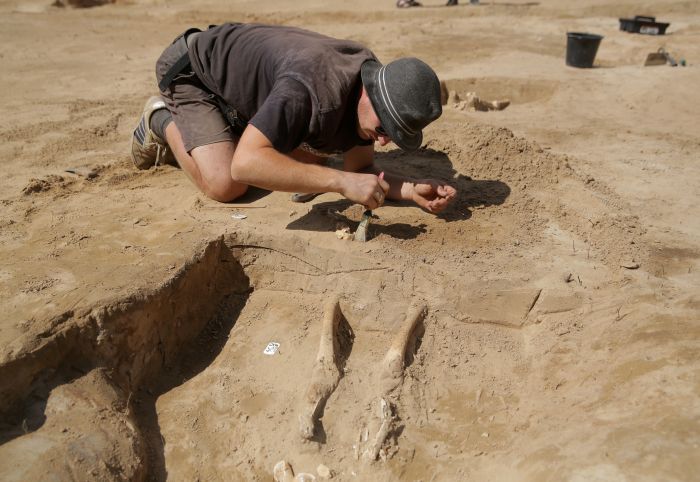
Excavations will continue until mid-August. The project 'Barczewko - history written with fire. A lost medieval city and urbanization of the Galindian Forest', created as part of the Opus 21 programme of the National Science Centre, is being implemented in 2022-2024 by a team of scientists from the Institute of Archaeology of the University of Gdańsk, with the involvement of specialists from Poland, Germany, Denmark and USA. (PAP)
PAP - Science in Poland, Marcin Boguszewski
mbo/ dki/ kap/
tr. RL

